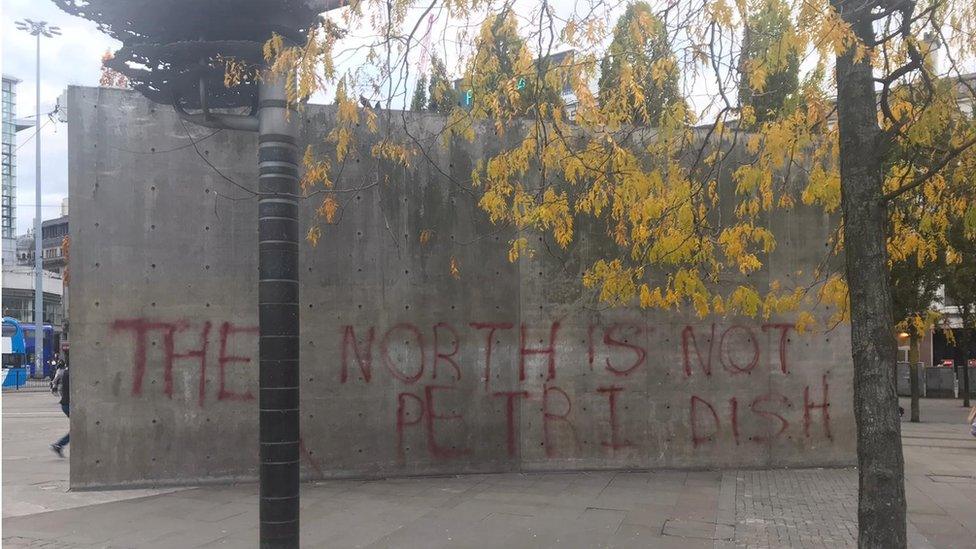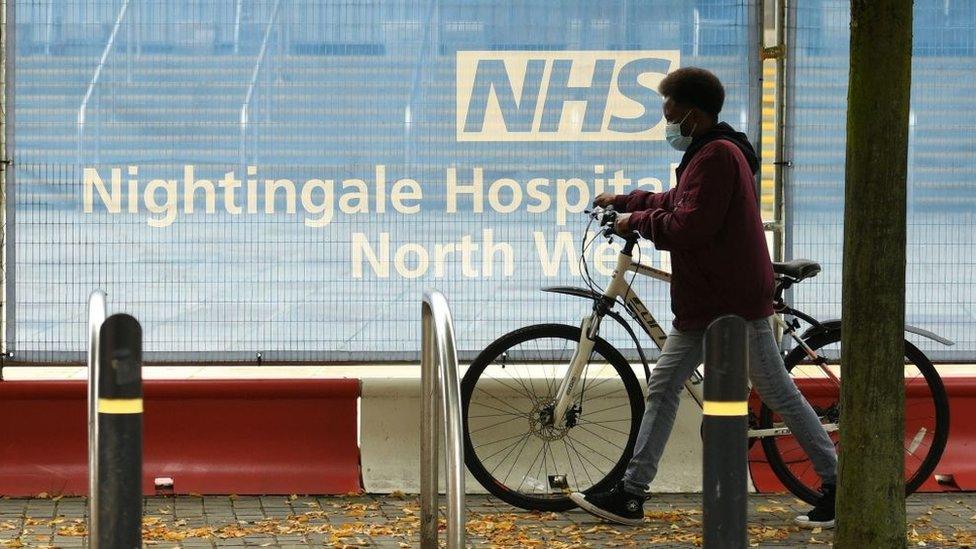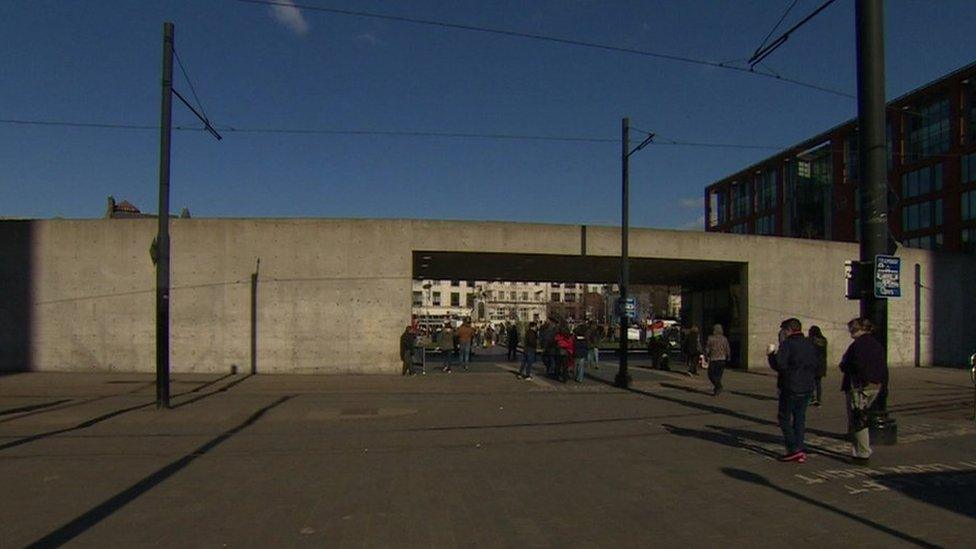Work to demolish 'monstrous' city wall begins
- Published

Graffiti appeared on a wall in Piccadilly Gardens in October
Work is under way to demolish a "monstrous" concrete wall branded a "mistake" in Manchester's Piccadilly Gardens.
Known locally as the Berlin Wall, the 20ft (6m) feature came to be seen as a symbol of decline in the gardens.
The area has seen an increase in crime, drugs and violence in recent years, said city centre spokesman Pat Karney.
However, it is hoped a piece of recent graffiti inspired by the Covid-19 shutdown could be preserved.
Mr Karney said the scrawled lettering reading "the north is not a petri dish" has "historical importance" and could be placed in the city's art museum.
The much-photographed graffiti was "a symbol of how Manchester fought back" in a row with the government over financial support during the pandemic.
The wall is being demolished as part of £10m redevelopment plans.
Mr Karney said it was "a mistake" that the wall, designed by Japanese architect Tadao Ando, was built in 2002.
He said: "Our pledge to the public is that we are going to get it right this time. We want what everyone in Manchester wants, to look on the gardens with affection and pride."
Some of the structure, which is attached to a privately-owned building, will remain for now and proposals for the area, which include extended gardens and improved lighting, will be published in two weeks.
Work to demolish the free standing wall is expected to be completed this week.

Why not follow BBC North West on Facebook, external, Twitter, external and Instagram, external? You can also send story ideas to northwest.newsonline@bbc.co.uk, external
- Published21 October 2020

- Published8 November 2016
